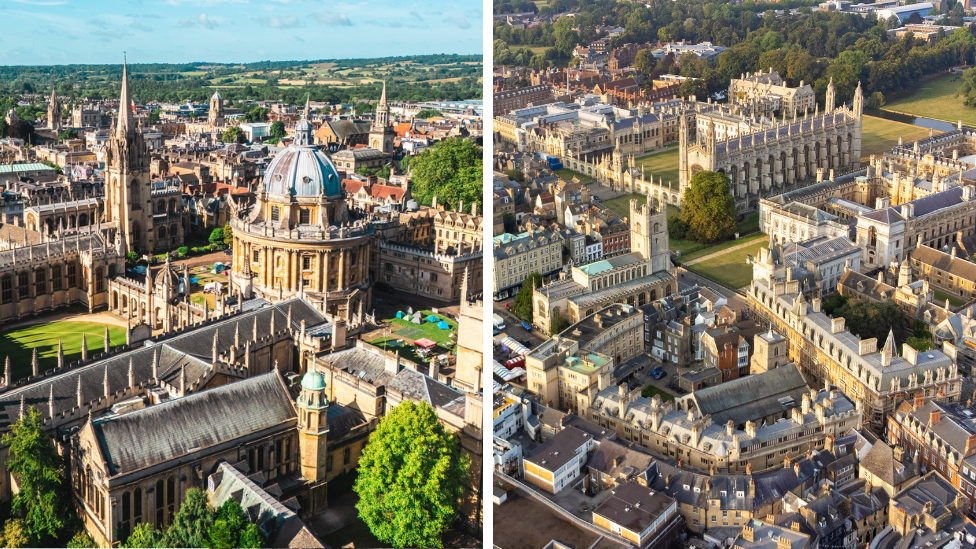Criticism for 'supercomputer' science park plans
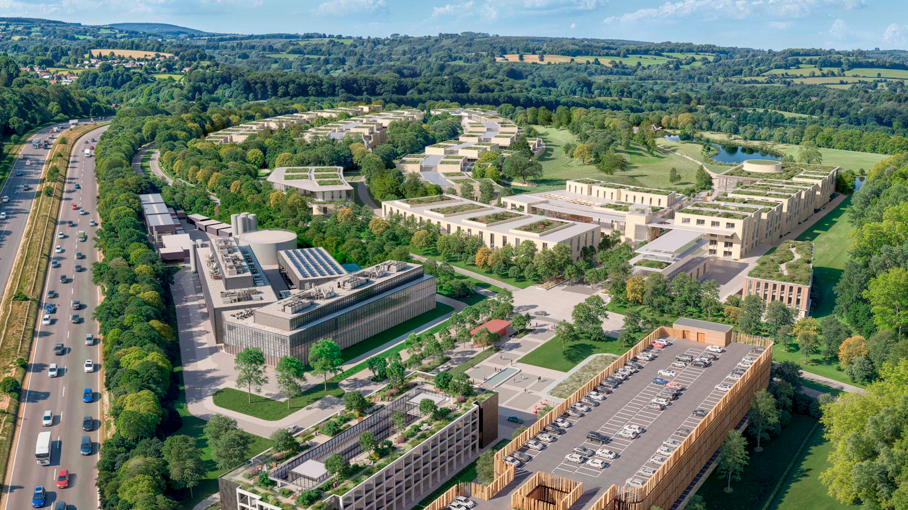
University of Oxford's Exeter College said an analysis suggested the development would create thousands of jobs in the Cherwell District
- Published
Plans for a "supercomputer" science park on a green belt land are facing criticism over its location and sustainability.
The University of Oxford's Exeter College is planning to build a research and innovation district EXOq between the Peartree Interchange and Kidlington.
Green councillor Ian Middleton opposed the choice of land even though he said jobs were needed.
The college finance and estates bursar Nicholas Badman said the site was in an area that had seen "significant change in recent years, with more proposed".
The college said an analysis suggested the development would create thousands of jobs in the Cherwell District.
"We do need jobs and this is an important proposal in terms of the research aspect," Mr Middleton said in an interview with BBC Radio Oxford.
"But it doesn't have to be on green belt."
The councillor, who represents Kidlington East, called the plans the "final nail in the coffin" for the Kidlington gap.
Part of the site was initially earmarked as a potential new golf course, after North Oxford Golf Club was forced to close so that the university could build homes.
"It was massively tone deaf of the university to actually use the clubhouse of the golf course they've just forced to close and were waiting for the bulldozers to roll in to announce this grand new development that nobody was ever told about before," Mr Middleton said.
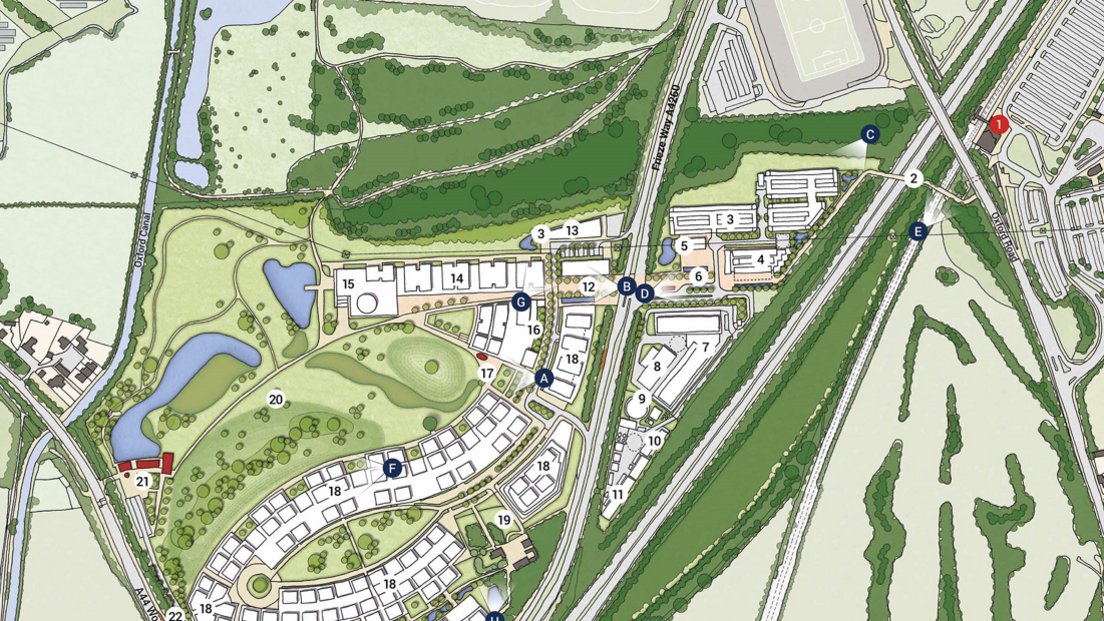
The plans show EXOq situated adjacent to Oxford Parkway Station
Former member David Young said all golfers he knew were "very upset at what has happened".
"The physical and mental health impact of all this will be very significant," he added.
He said the Greenway group, which tried to save the club from closure, still existed to ensure that a new golf course is set up in the local area.
The Campaign to Protect Rural England also said it "strongly" opposed the development.
"Not only is the green belt the countryside next door for over 166,000 Oxford residents, providing numerous mental and physical health benefits, but green belt land also plays a crucial role in nature recovery, climate mitigation and adaptation, as well as contributing to local food security," it said.
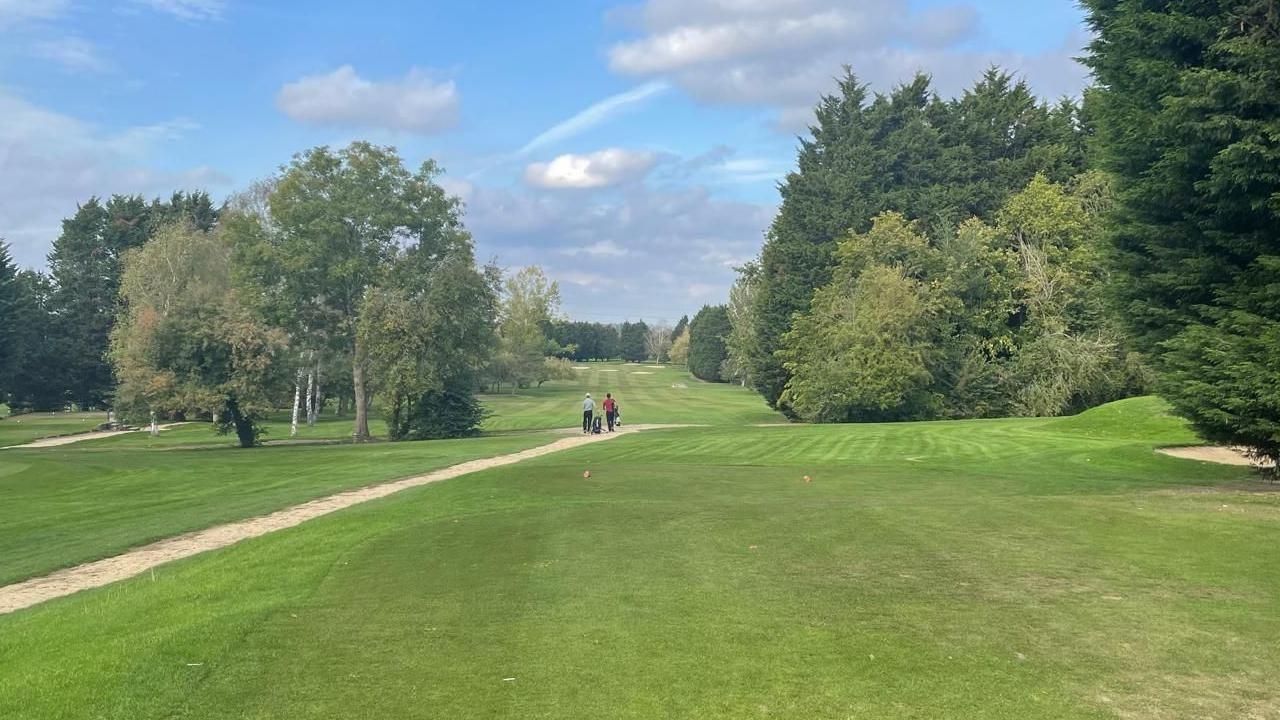
North Oxford Golf Club closed last month
Mr Badman said the site was in an area which had seen "significant change in recent years, with more proposed".
"It is bounded by two dual carriageways and crossed by National Grid electricity pylons," he said.
He added the area was "well provided for golf and there's no need for reprovision".
"We have already submitted evidence to the Local Plan consultation which demonstrates that the demand for golf is gradually declining and there is insufficient demand locally to justify reprovision," he said.
"It's worth everyone bearing in mind that the North Oxford Golf Club decided to shut down completely rather than re-provide.
"My understanding is that allows members to share directly in the £4.3m windfall."
Mr Badman said developers were "very keen" to hear from residents via the development's website, external.
Get in touch
Do you have a story BBC Oxfordshire should cover?
You can follow BBC Oxfordshire on Facebook, external, X (Twitter), external, or Instagram, external.
Similar stories
- Published13 November

- Published11 November
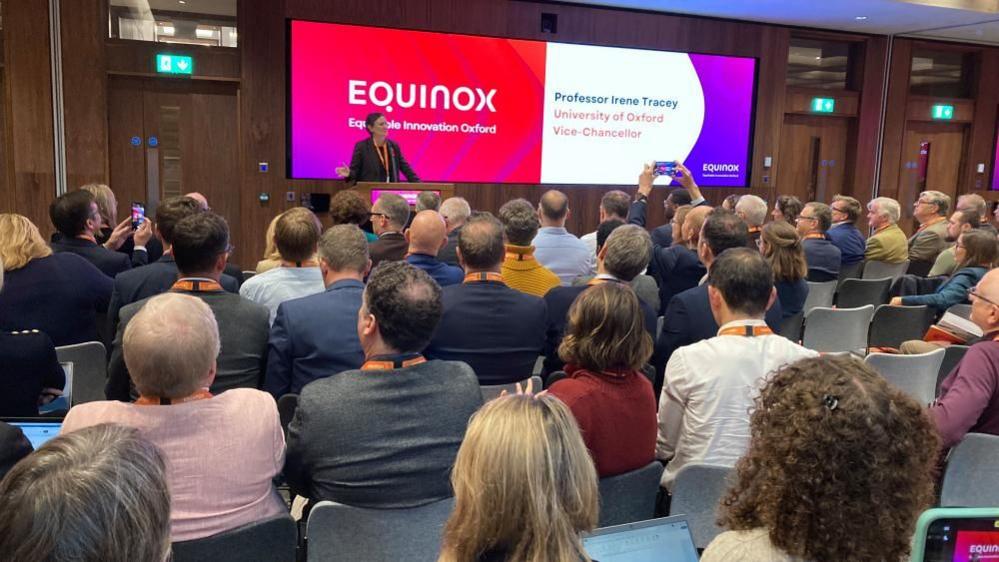
- Published23 October
